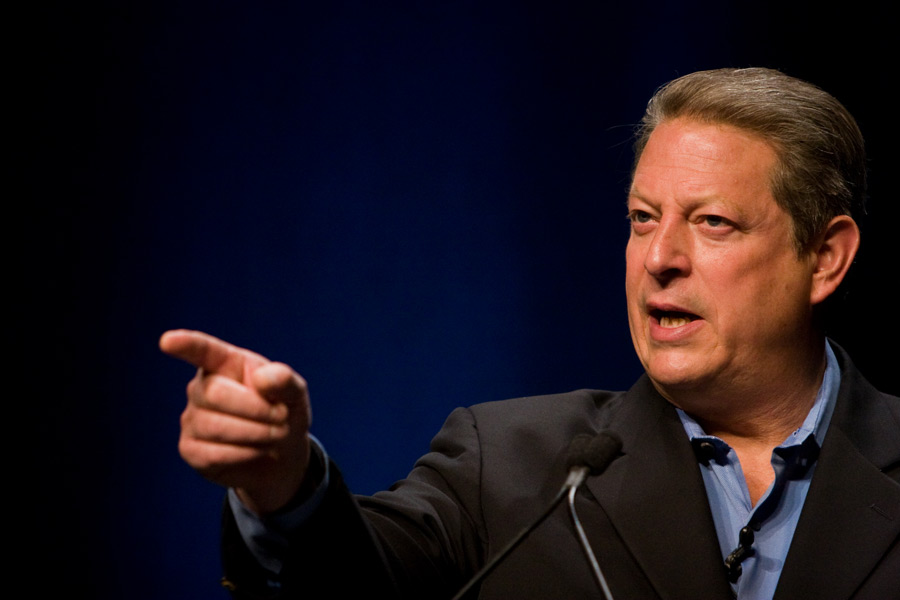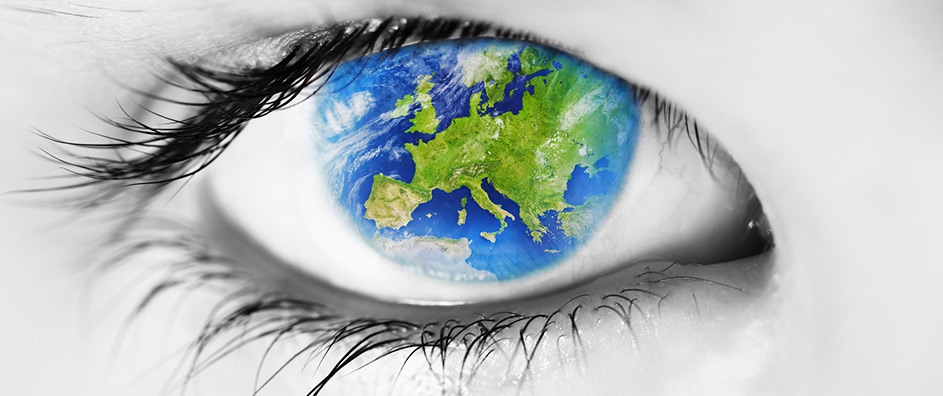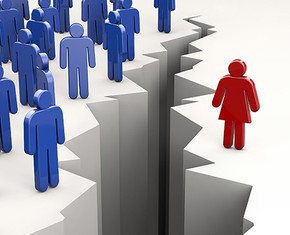The views expressed in our content reflect individual perspectives and do not represent the authoritative views of the Baha'i Faith.
Ten years ago, the film “An Inconvenient Truth” brought the reality of climate change into mainstream consciousness. One year ago, I had my own personal encounter with the film’s creator, Al Gore. I have nicknamed my experience “An Inconvenient Insomnia” because that summarizes my reaction to it. Try spending two days with Al Gore and his team and you might end up like I did—with so much to think about that your brain can’t stop for sleep.
I consider myself a spiritual environmentalist and am admittedly a tree-hugger, hippie, greenie, granola eater, bean sprout (pick your label), though in recent years I have focused more on my career and personal life than on social activism. Through a combination of renewed focus, impulsiveness and enthusiasm, I applied to attend a two-day “Climate Reality Leadership Training” in Toronto.
The application form included questions about other volunteer activities and environmental projects. Very importantly, it also asked for a pledge of ten “acts of service” over the next year. This emphasis on real-life application reminded me of Abdul-Baha’s words:
Knowledge is the first step; resolve, the second step; action, its fulfillment, is the third step. – Abdu’l-Baha in London, p. 54.
Mr. Gore led the event, enriching it through panelists, guest presenters and interactions with 600 eager participants from dozens of countries. The first day, he devoted two hours to updating the presentation featured in his Oscar-winning film “An Inconvenient Truth.” This included showcasing dozens of extreme weather events from around the world. My heart ached as I saw photos and watched videos of these tragedies. One part of my brain processed them from a scientific, economic, and social justice perspective. Another part of my brain kept thinking about how many of them there were, how many I had admittedly forgotten about, and how fortunate I am not to have lived through them directly.

Yet they are now part of my personal reality, which is perhaps the point of the training and of this essay: a pointed reminder of our interconnectedness. As the Baha’i writings state:
For every part of the universe is connected with every other part by ties that are very powerful and admit of no imbalance, nor any slackening whatever. – Abdu’l-Baha, Selections from the Writings of Abdu’l-Baha, p. 157.
Far from being dark and foreboding, Mr. Gore’s presentation and the training as a whole had a hopeful tone. We learned about signs of improvement, both small and large. Some of the smaller ones included towns with improved systems for generating power, while larger ones showcased major technological innovations or high-level government initiatives. The overall message motivated me – and surely many others – to share the news even as we engage in the work ahead.
Mr. Gore remained determinedly non-partisan throughout the leadership training session, characterizing political issues as systemic rather than partisan. We learned that every government’s leaders, whatever their party or affiliation, need to act with their conscience and our planet in mind. While I believe that humanity has a future, and the Baha’i teachings affirm that future, the question is whether we will act justly and quickly enough to protect our planet, our home.
In the year since that powerful learning event, I have had a chance to continue my learning as well as expand my personal involvement. Underlying it all, I have concluded, is the fundamental principle of justice:
When this unshakeable basis of the Love of God was established in the world, then inevitably would the structure of a new social justice rise, and a new individual love and justice. – Abdul-Baha, Star of the West, Volume 2, p. 12.
If humanity were to use justice as the basis for our decisions, we would not allow preventable extinctions, loss of habitat, melting of polar ice caps or the vanishing of island-nations and coastlines. We would not tolerate displacement of whole communities, nor would we allow the allocation of resources to be determined by economics rather than compassion. We would neither consume more than we need nor waste the excess. We would not blame others for the cause of climate change, or be stopped by greed. We would not shift the responsibility to future generations to solve it all.
Al Gore and other leaders in the effort to stop climate change are earnestly working to solve man-made problems, prevent escalation of tragedies and mitigate already-occurring events. They also need us as individuals to educate ourselves, communicate with influential people, and offer assistance wherever and as best we can. We must engage people of all ages and cultures. We must be diligent in our daily habits, the purchases we make, our lifestyles, and the people we entrust with our future. Surely doing so will help us to sleep better at night.
As Abdul-Baha promised:
When perfect justice reigns in every country of the Eastern and Western World, then will the earth become a place of beauty. – Paris Talks, p. 155.
You May Also Like
Comments

















As an engineer I know that we can live well while living much more lightly on the earth. We can do this while sustainably supporting the present population, or even more. We do not need ...deus ex machina technical breakthroughs. We just need to develop and apply what we already know. We need to replace our extremely materialistic lifestyle with a more moderate, spiritually fulfilling way of life.
When I talk about this, I am almost always met with either hatred for daring to question the status quo, or fatalism saying that even if something can be done, it will not be done. I see no evidence in the outer world that the fatalists are mistaken. The Baha'i teachings are the only thing to hold onto, but the flood continues to rise.